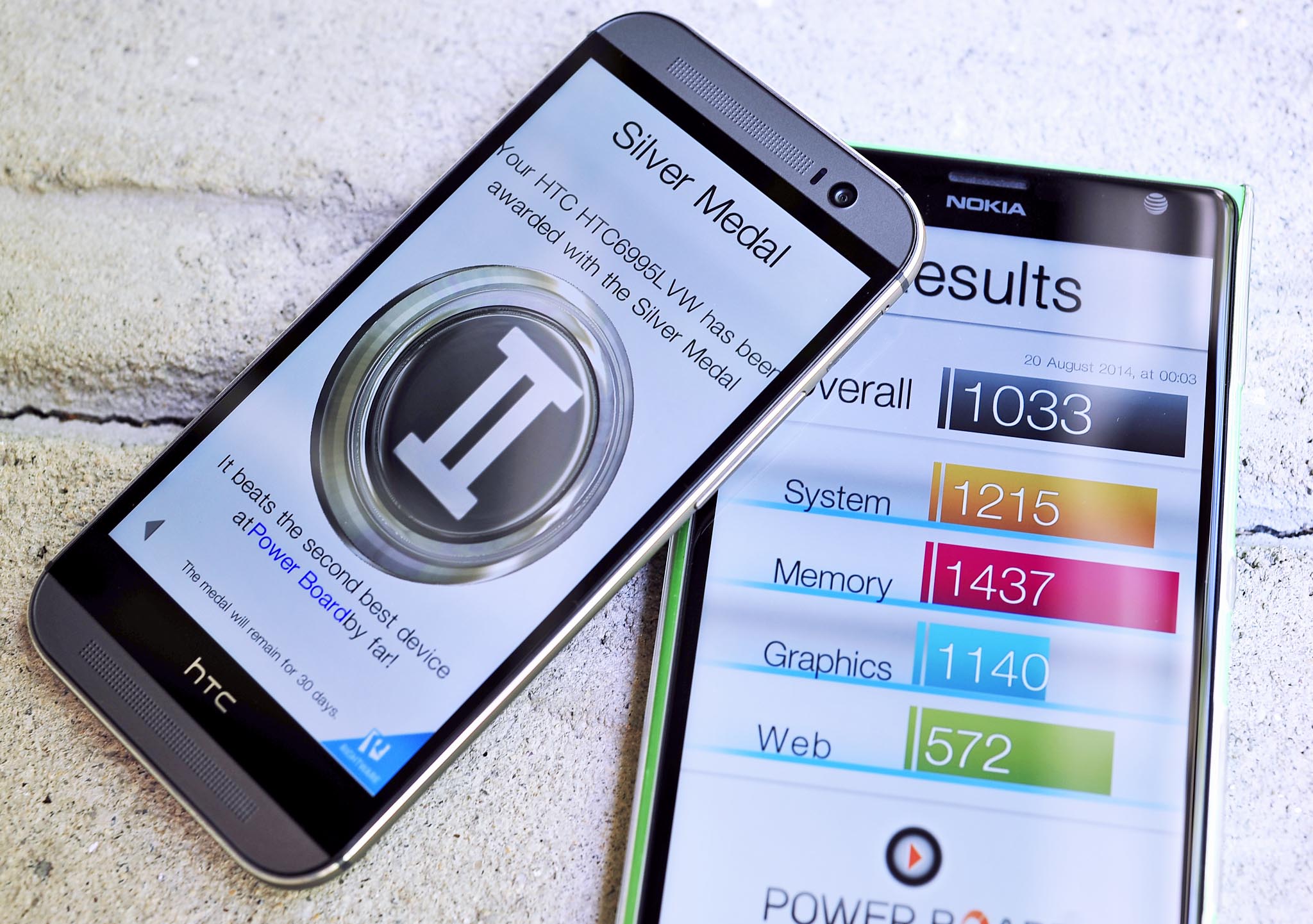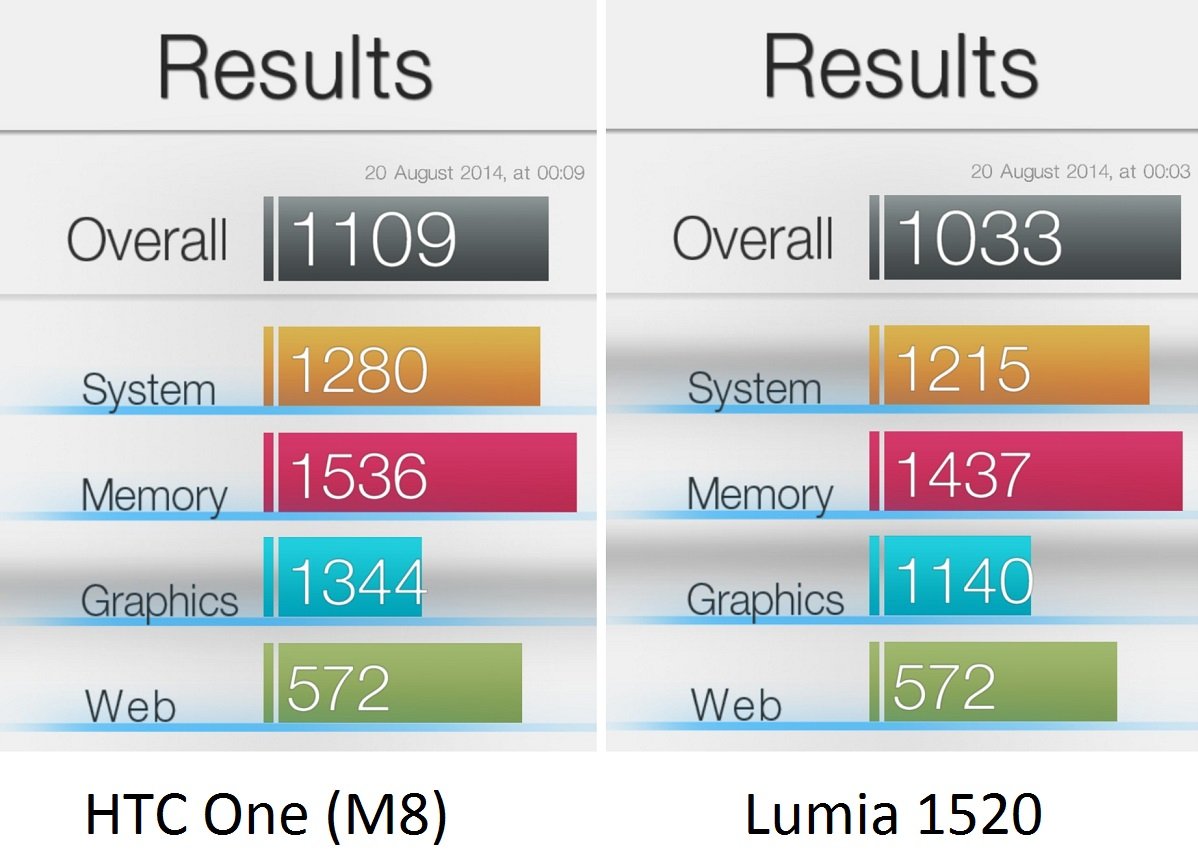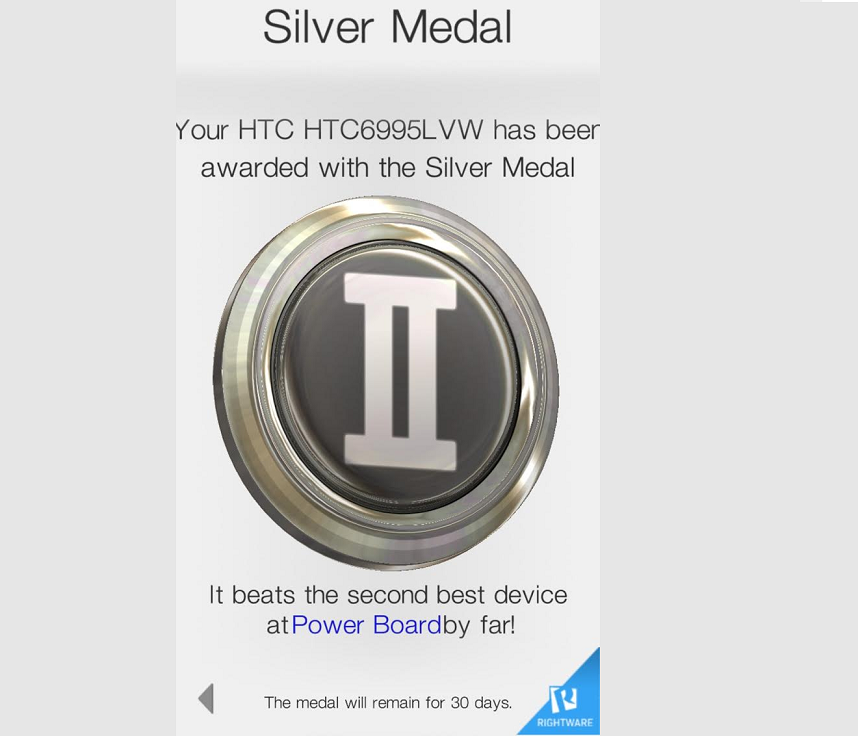HTC One (M8) for Windows wins Silver Medal in benchmarks, becomes world's fastest Windows Phone

All the latest news, reviews, and guides for Windows and Xbox diehards.
You are now subscribed
Your newsletter sign-up was successful
The HTC One (M8) for Windows is now available for those in the US on Verizon Wireless. In the coming months, other carriers, including AT&T, are set to launch the same flagship Windows Phone. The release of the HTC One (M8) for Windows is good news because with the cancellation of 'McLaren,' there are no flagship Lumias on the immediate horizon.
When it comes to hardware, the HTC One (M8) for Windows features some innovative specs, including a newer Snapdragon 801 chipset clocked at 2.3 GHz along with the Adreno 330 GPU. The Lumia 1520 packs a still noteworthy – but older – Snapdragon 800 with a 2.2 GHz clock speed and Adreno 330 GPU.
Does it make it a difference? Indeed it does. The HTC One (M8) has become the second fastest smartphone in the world, and the fastest Windows Phone to date.
Testing
The Lumia 1520 was chosen as the competitor as it, and its sister device the Lumia 930/Icon, are considered to be the biggest Windows Phone competitors to the HTC One (M8) for Windows.
For testing purposes, we used the popular Basemark OS II, a freeware application that is also cross-platform for Windows Phone, Android and iOS. On both phones, the app was installed to main memory and not the micro SD card to ensure maximum performance. Multiple tests were run with the highest of three tests used for the final analysis.
The Lumia 1520 is running Windows Phone 8.1 Update build 14157 with the Lumia Cyan firmware. The HTC One (M8) for Windows is running Windows Phone 8.1 Update build 14141 with optimized firmware for that build.

Results
The HTC One (M8) for Windows is the clear winner. Not only did it handily beat the Lumia 1520, it technically displaced the second fastest phone across platforms, the Asus PadFone Infinity 2. Here are their respective Basemark OS II scores
All the latest news, reviews, and guides for Windows and Xbox diehards.
- HTC One (M8) for Windows – 1109
- Asus PadFone Infinity 2 – 1077
- Lumia 1520 – 1015
As a result, the HTC One (M8) for Windows is awarded Basemark's Silver Medal for its score. The current champ for gold is the Sony Xperia Z2 with a 1226 Basemark score.
We also ran the 'extra' test, which measured the speed of the rear camera for both phones. The Lumia 1520 and HTC One (M8) for Windows were both focused on the same object, next to each other to ensure similar performance. Conditions were 'bright light' for one set and 'low light' for another (inside a well-lit room).
- HTC One (M8) for Windows – 370-425
- Lumia 1520 – 385-386
This test measures the speed of focusing and capturing, not quality of the resulting images. Regarding camera performance, the focus of this analysis, the HTC One (M8) for Windows can outperform the Lumia 1520 in well-lit conditions, whereas in poor or medium-lit environments it is more evenhanded.

Conclusion
Putting aside numbers and measured tests, from personal experience the HTC One (M8) for Windows does have better OS performance in terms of speed, app launching and general responsiveness. This perception is likely attributed to the slightly faster and newer Snapdragon 801 chipset. Still, some performance differences could be credited to two other variables:
- The Lumia 1520 is running a newer version of the OS due to the Preview for Developers program
- The Lumia 1520's firmware is optimized for Windows Phone 8.1, but not for Windows Phone 8.1 Update, whereas the HTC One (M8) for Windows's firmware is optimized for the new Update
Forthcoming firmware for the Lumia 1520 for Windows Phone 8.1 Update, codenamed 'Debian Red', may improve its score. Likewise, the newer OS version may negatively affect performance. Although more tests may change the differences between the two phones, it is unlikely that the Lumia 1520 could outperform the HTC One (M8) for Windows as the latter chipset is clocked slightly higher than the other one.
In conclusion, the HTC One (M8) for Windows not only brings HTC's flagship form factor to Windows Phone users, but it is also now the fastest Windows Phones around.


Daniel Rubino is the Editor-in-Chief of Windows Central. He is also the head reviewer, podcast co-host, and lead analyst. He has been covering Microsoft since 2007, when this site was called WMExperts (and later Windows Phone Central). His interests include Windows, laptops, next-gen computing, and wearable tech. He has reviewed laptops for over 10 years and is particularly fond of Qualcomm processors, new form factors, and thin-and-light PCs. Before all this tech stuff, he worked on a Ph.D. in linguistics studying brain and syntax, performed polysomnographs in NYC, and was a motion-picture operator for 17 years.
